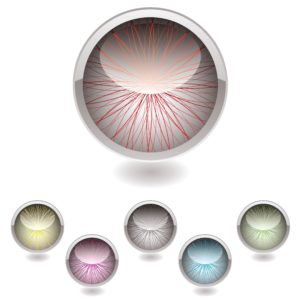
Hearing and vision impairment are increasingly common as people age. After the age of 70 years, over two-thirds of people have a significant hearing and/or vision problems. Dementia is also strongly linked with age; more than one third of people over 90 years have dementia. Unfortunately, hearing and vision impairments are under-identified and under-treated in people with dementia. When sensory impairments co-occur with cognitive difficulties, the impact on the individual is magnified: dependency may increase, cognitive decline may be more rapid, and communication problems are greater. This increases the risk of social isolation as well of as developing delirium (confusional states) and challenging behaviors (e.g. agitation, aggression). Ultimately, the quality of life for the person with dementia declines, and the cost of care increases. Despite this, the opportunity to address hearing and vision impairment as a cost-effective way to improve outcomes for older adults is significant. Ameliorating sensory impairments to improve mental well-being is a key aim of our European Commission-funded Horizon 2020 program ‘SENSE-Cog’.
What we did
Our journey with SENSE-Cog started in 2016 in the response to the call for proposals under the banner of ‘Mental Wellbeing for Older People.’ Based on this, we gathered 27 investigators from across Europe, representing a range of disciplines, including hearing, vision, and cognitive health, and the fields of epidemiology, health economics, biostatistics, and clinical trial design. Together, we decided to examine the links among hearing, vision, and cognitive health, with a view to clinical applications. In our new study in BMC Geriatrics, we consulted with people living with dementia (n=18) and their care partners (n=15) in the UK, Cyprus, and France to determine the best approach to improving the lives of people with dementia with co-occurring hearing and vision problems. Several key themes emerged, including: (1) the need to improve our methods of assessment of cognition in people with hearing and vision problems and (2) the possibility of improving quality of life in dementia by improving hearing and vision health.
The lack of valid and reliable assessment tools … was a significant unmet need.
Challenges identified
Our qualitative data revealed three areas of difficulty for persons with dementia (PwD) and their care partners, illustrated here with quotations.
First, hearing, vision, and cognitive assessments were not appropriately addressed to the complex needs of PwD and sensory comorbidity:
I know what she got it wrong [in the assessment], I knew the ones she can’t do […], you’ve got to draw a diagram, which will be inside a box, and […] I know she can’t do it, she can’t. But I mean that’s it, I got nothing, I got nothing else. Just a score. (Care partner)
Second, PwD commonly experienced challenges in communication and conveying unmet needs and concerns to care partners and professionals, across domains:
It [my condition] has taught me to listen to people. If they’re talking to me, you know, really listen to what they say, which I think some, some, I don’t say generalised but some people don’t listen to what you say to them. So if I want to know I’ve got to listen. (PwD)
Third, information about and guidance regarding support for the condition was not adequate in the assessments:
Researcher: so there wasn’t much of an explanation?
Care partner: […] yes more explanatory, this might have happened because there are different doctors and they are very busy…
Researcher: neither for how to take care…
Care partner: They have to inform us more.
From our consultations, it was clear that the lack of valid and reliable assessment tools for assessing cognition in people with sensory impairments and for assessing hearing and vision in people with cognitive impairments was a significant unmet need.
People at risk of or with dementia often do not report hearing and vision impairments. Likewise, people with hearing and vision problems often have difficulty completing cognitive assessment tests, since most of these tests rely on intact hearing and vision.
Responding to unmet needs
We then attempted to address these outstanding needs by (i) developing and validating new cognitive assessments specifically adapted for people with hearing or vision impairment and (ii) developing and evaluating a home-based ‘sensory support intervention’ to improve quality of life and other outcomes for people with dementia.

The assessment development work centers around alternative forms of the Montreal Cognitive Assessment (MoCA) being developed and validated for people with either hearing or vision impairment. The home-based intervention involves assessment of hearing and vision linked to individualized sensory support for people with dementia, delivered by a sensory support worker. The additional support from the therapist helps with uptake, correct use, and maintenance of hearing aids and glasses. The therapist also provides advice on improving the sensory environment in people’s homes; this might involve better lighting, noise reduction, or addressing problems with acoustics. Finally, the therapist also teaches communication skills for care partners and directs the person with dementia to community supports and services, if needed. The intervention was developed with the input of several stakeholders and field-trialed in three countries. It is now being evaluated in a definitive randomized controlled clinical trial in five European countries.
Throughout the SENSE-Cog program, the needs and perspectives of patients and their care partners have been central. The design and conduct of all of the work is informed by a network of ‘Research User Groups’ in five European cities, comprising people living with dementia or sensory impairment and their care partner(s).
What’s next?
SENSE-Cog will provide validated cognitive assessments adapted for hearing and vision impairment to improve the reliability of diagnoses. It will also provide an evidence base for sensory-based interventions to improve outcomes for people with dementia and inform clinical practice guidelines for clinicians and care workers in hearing, vision, and cognitive health. In addition, the SENSE-Cog project is creating momentum and interest in the worldwide research and clinical community in the growing field of sensory-cognitive health. Our future work includes translating the sensory support intervention to other settings, including low- and middle-income countries (SENSE-Cog ASIA) and care (nursing) home settings (SENSE-Cog CARE).
Comments